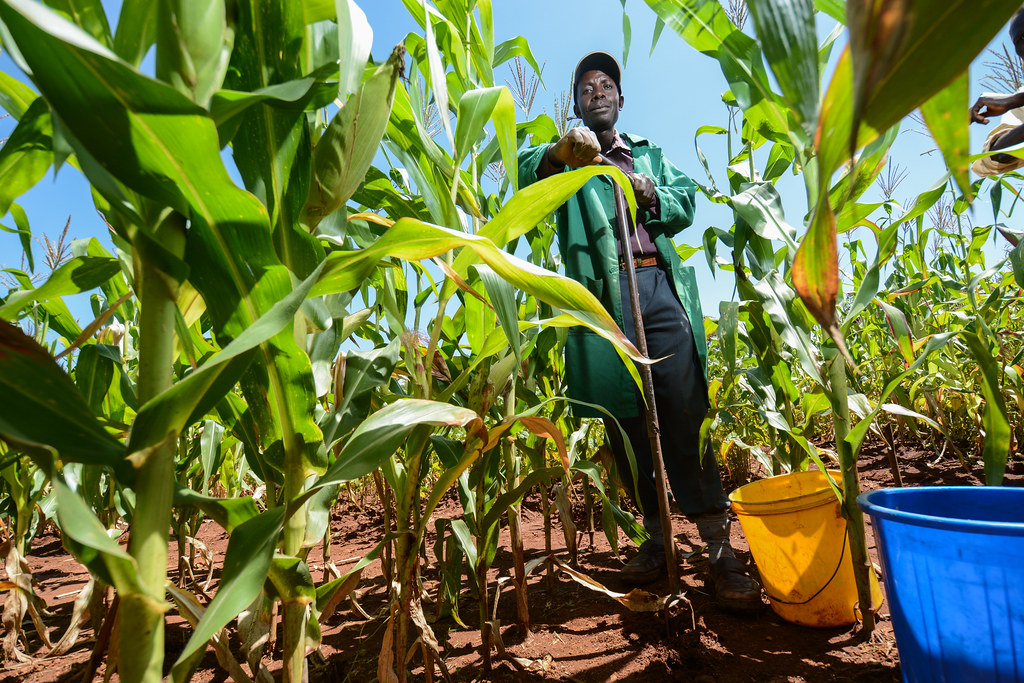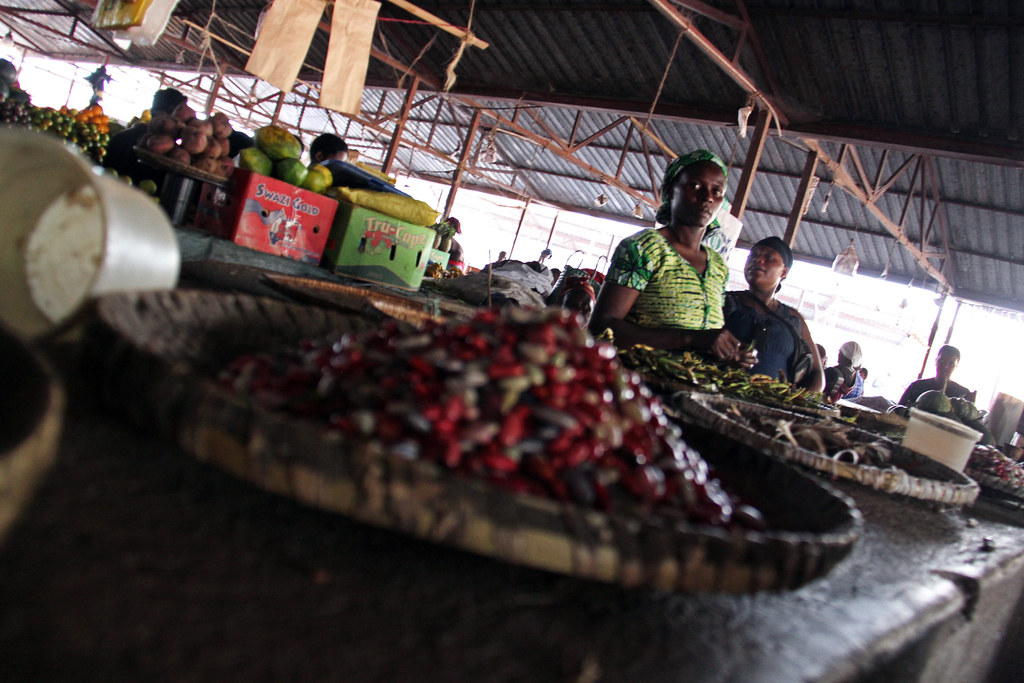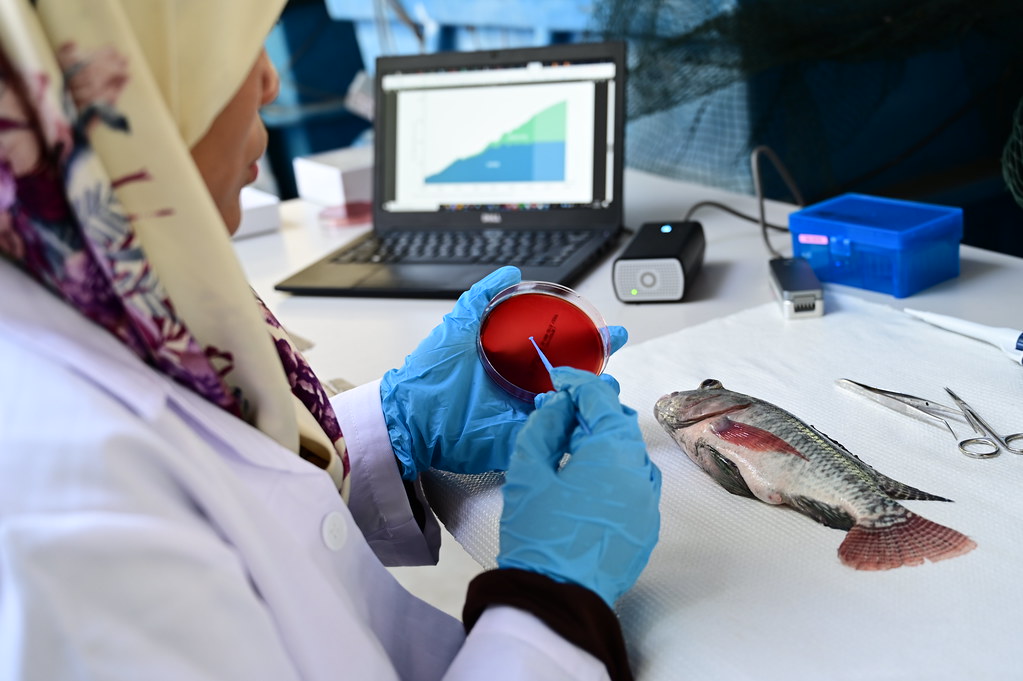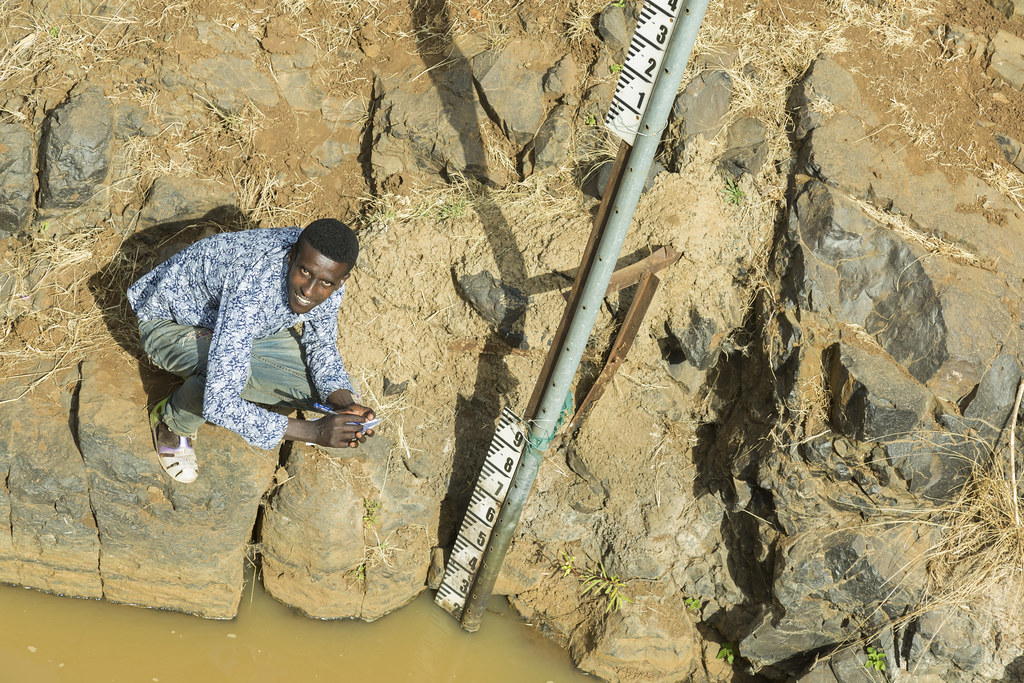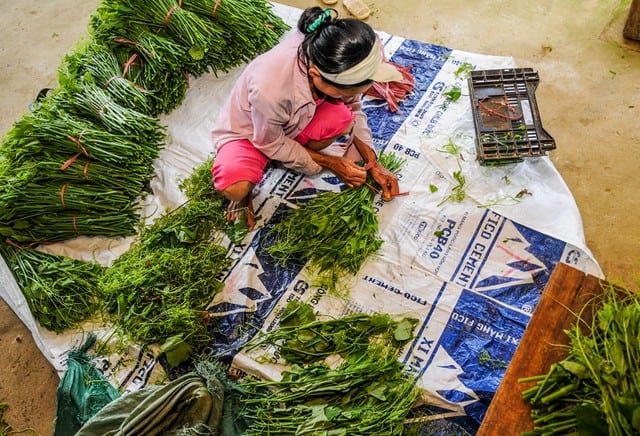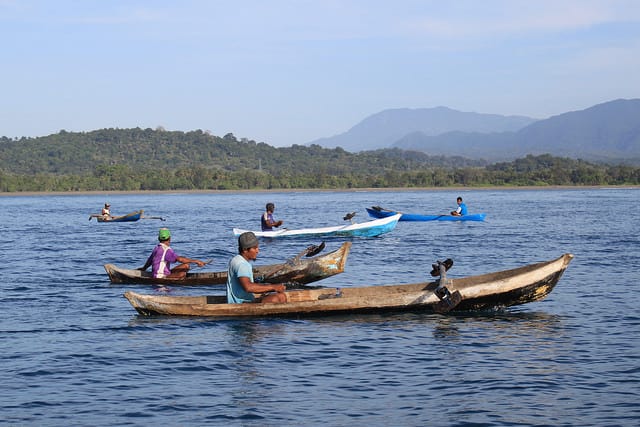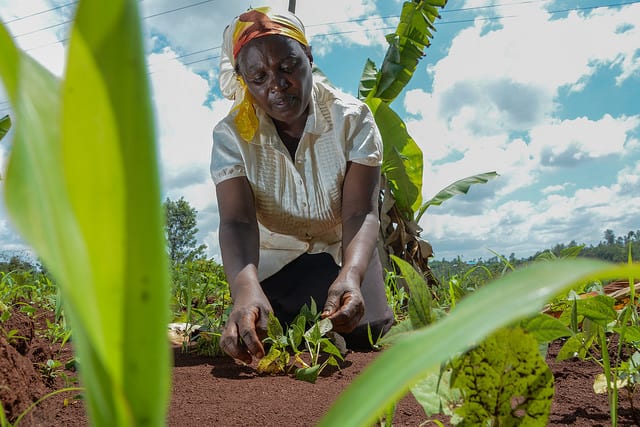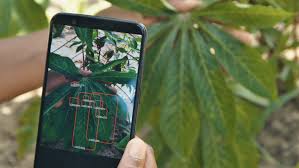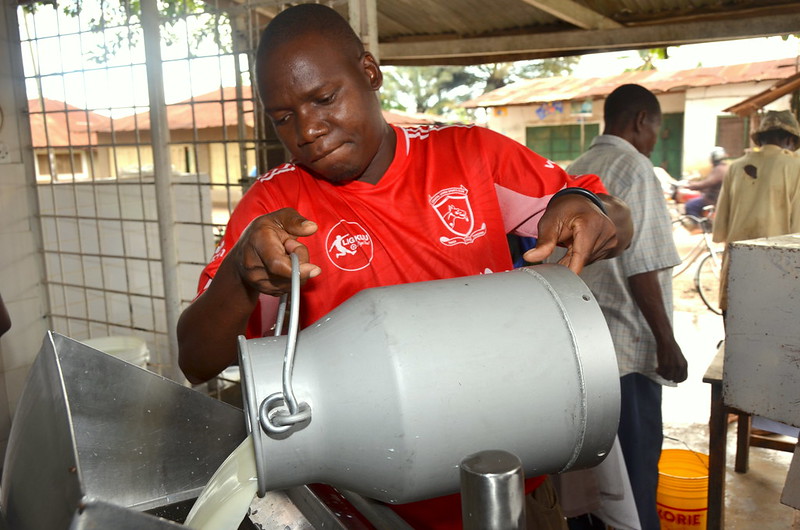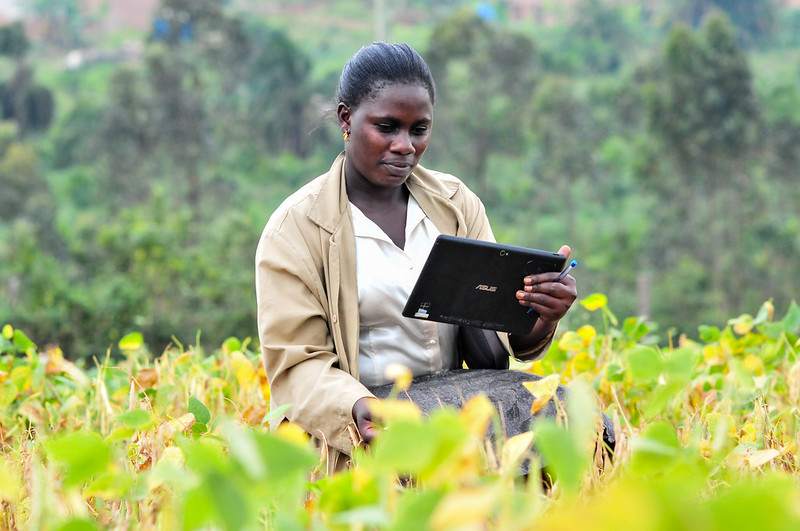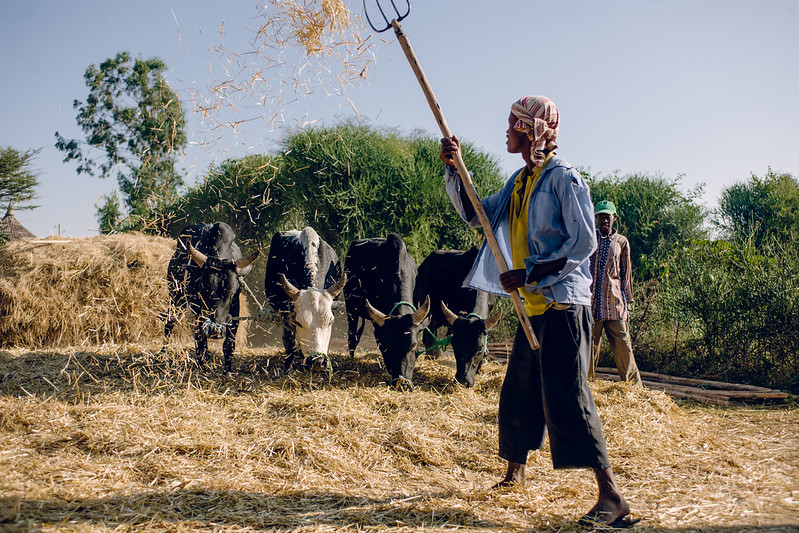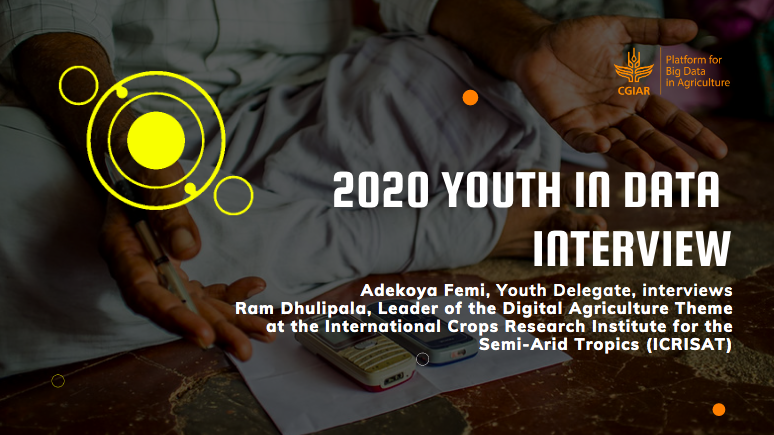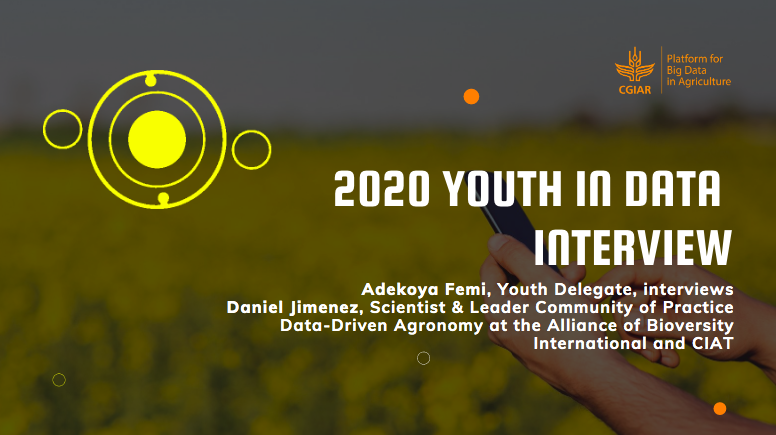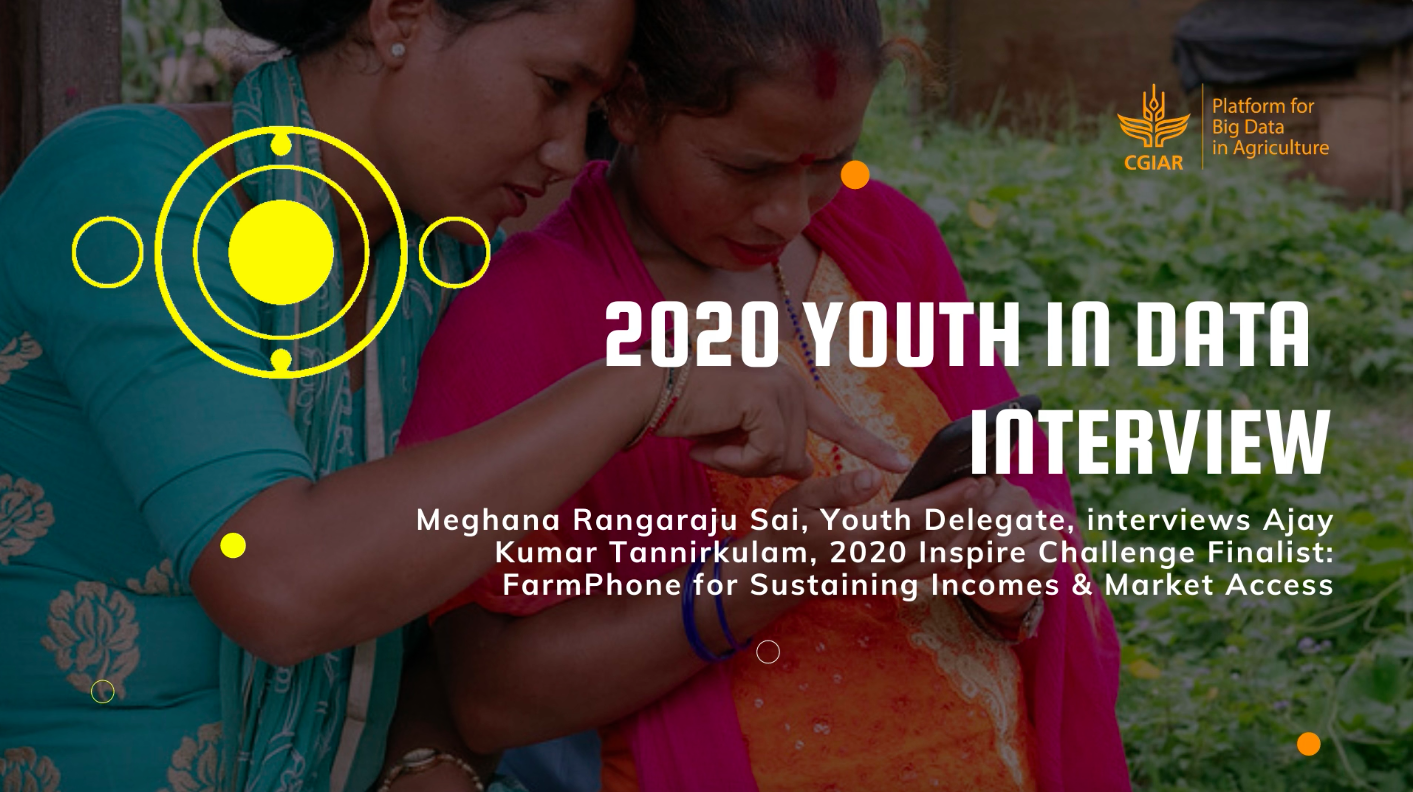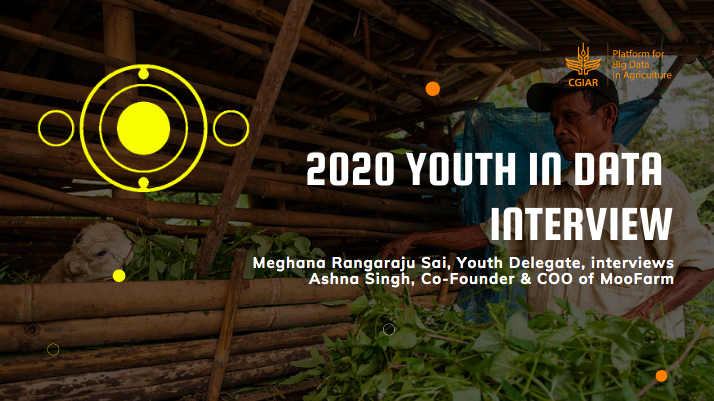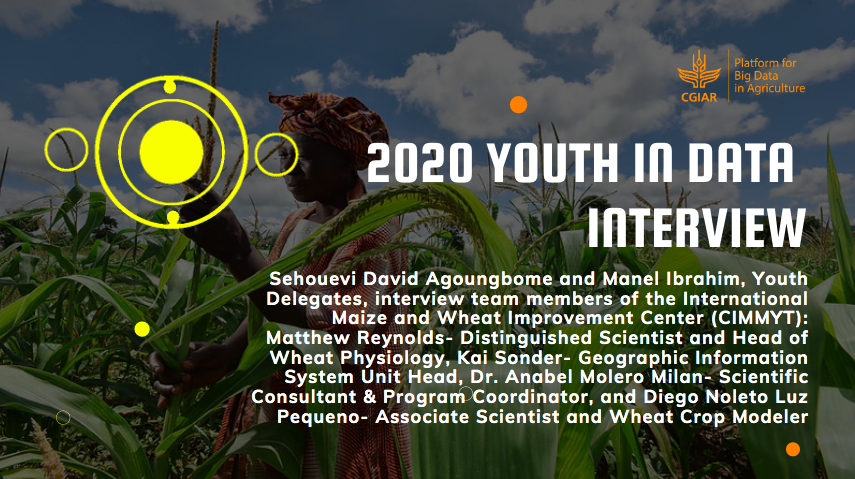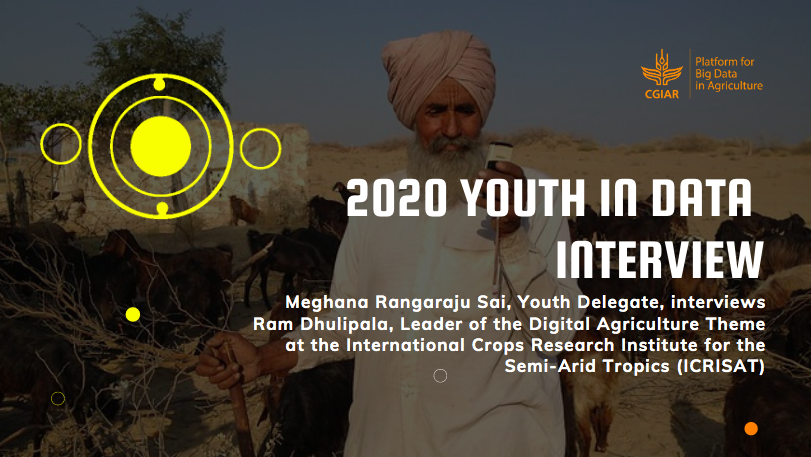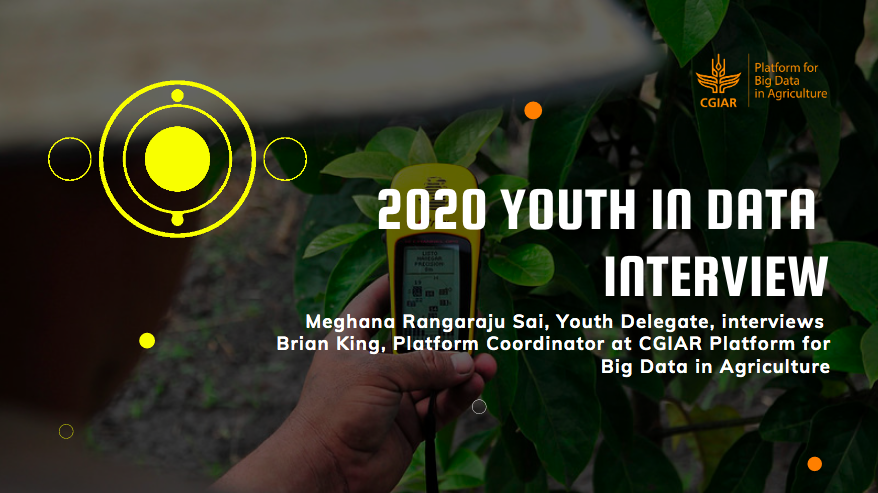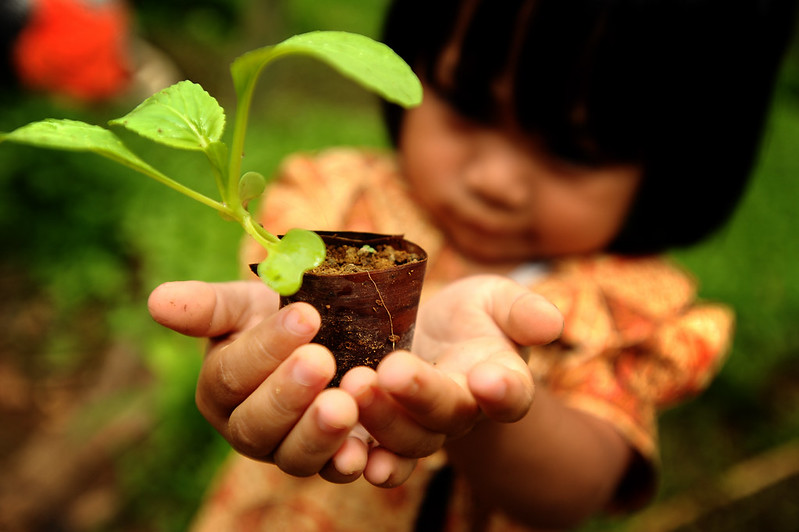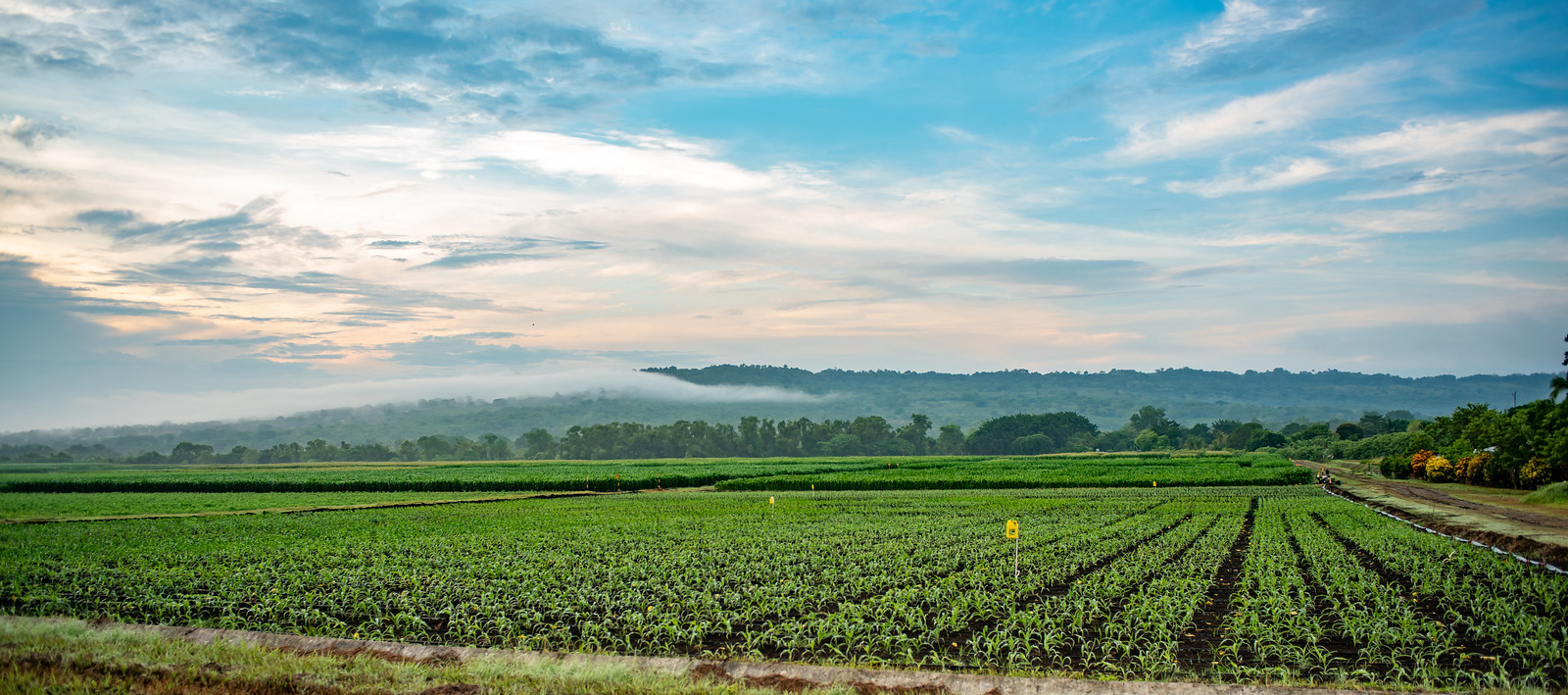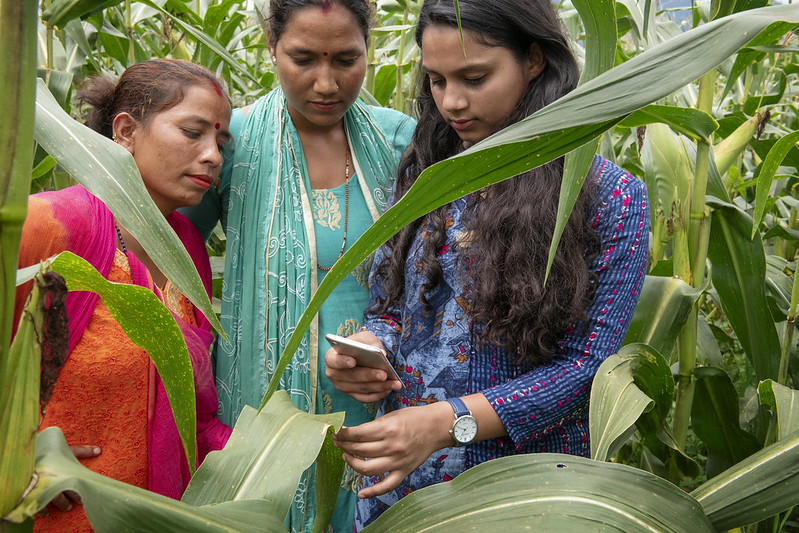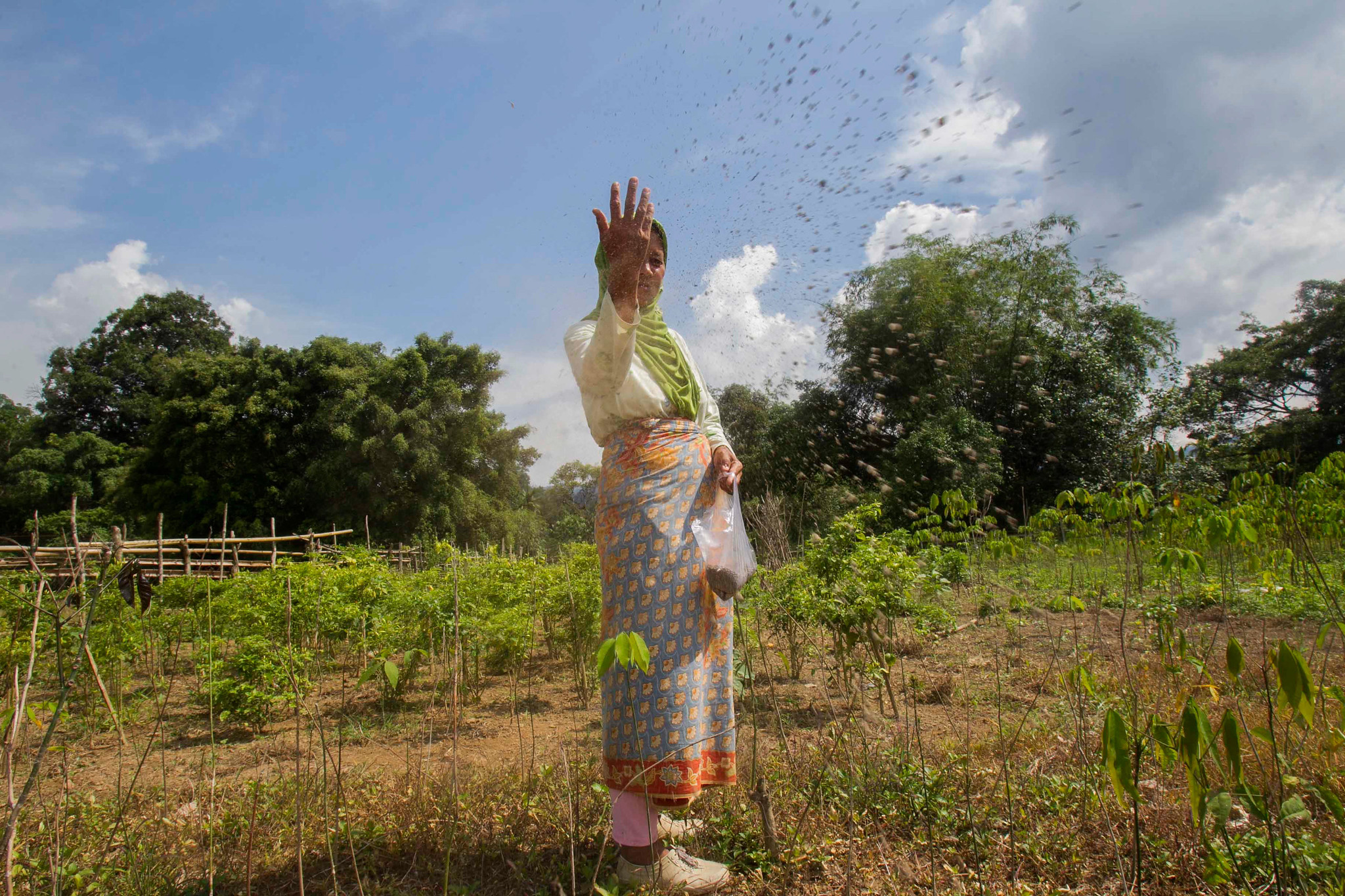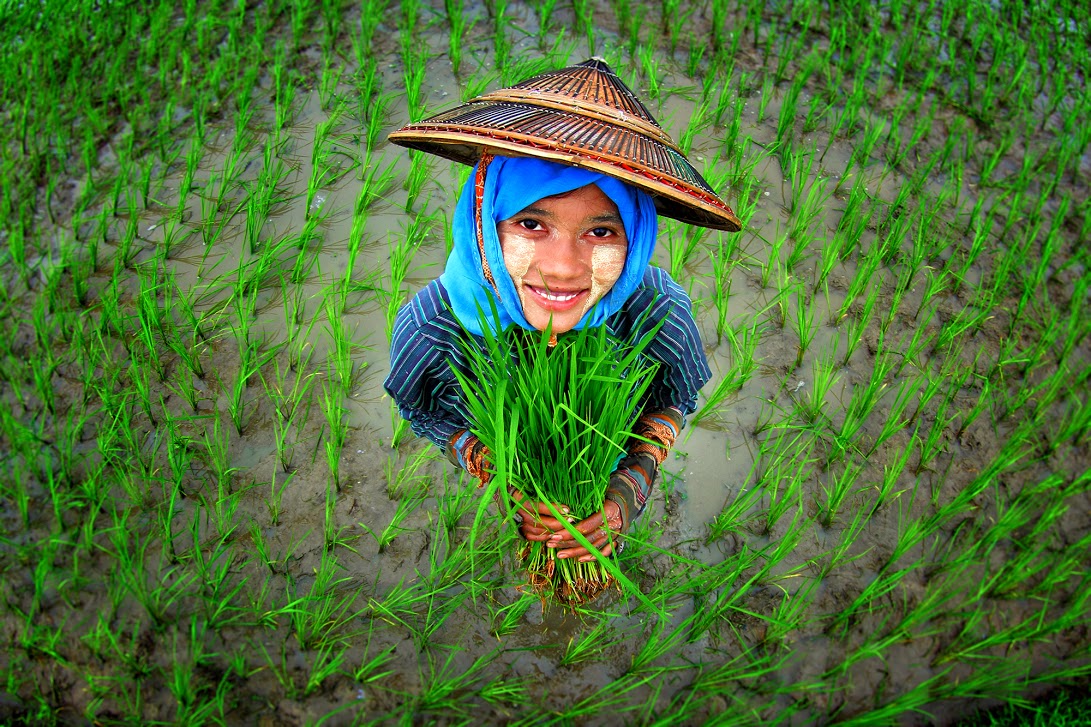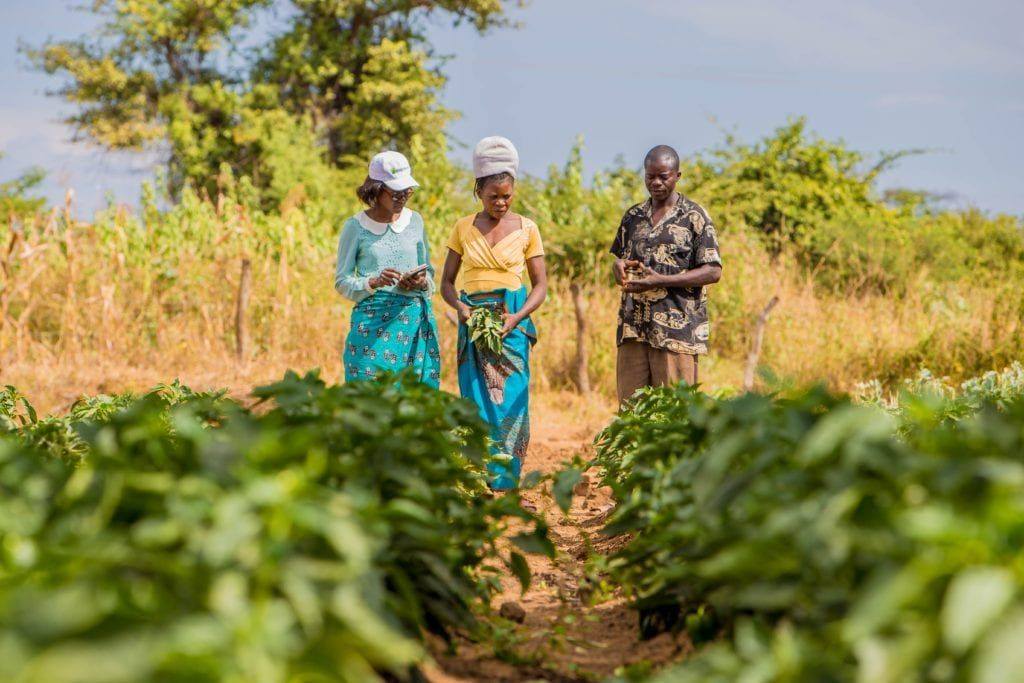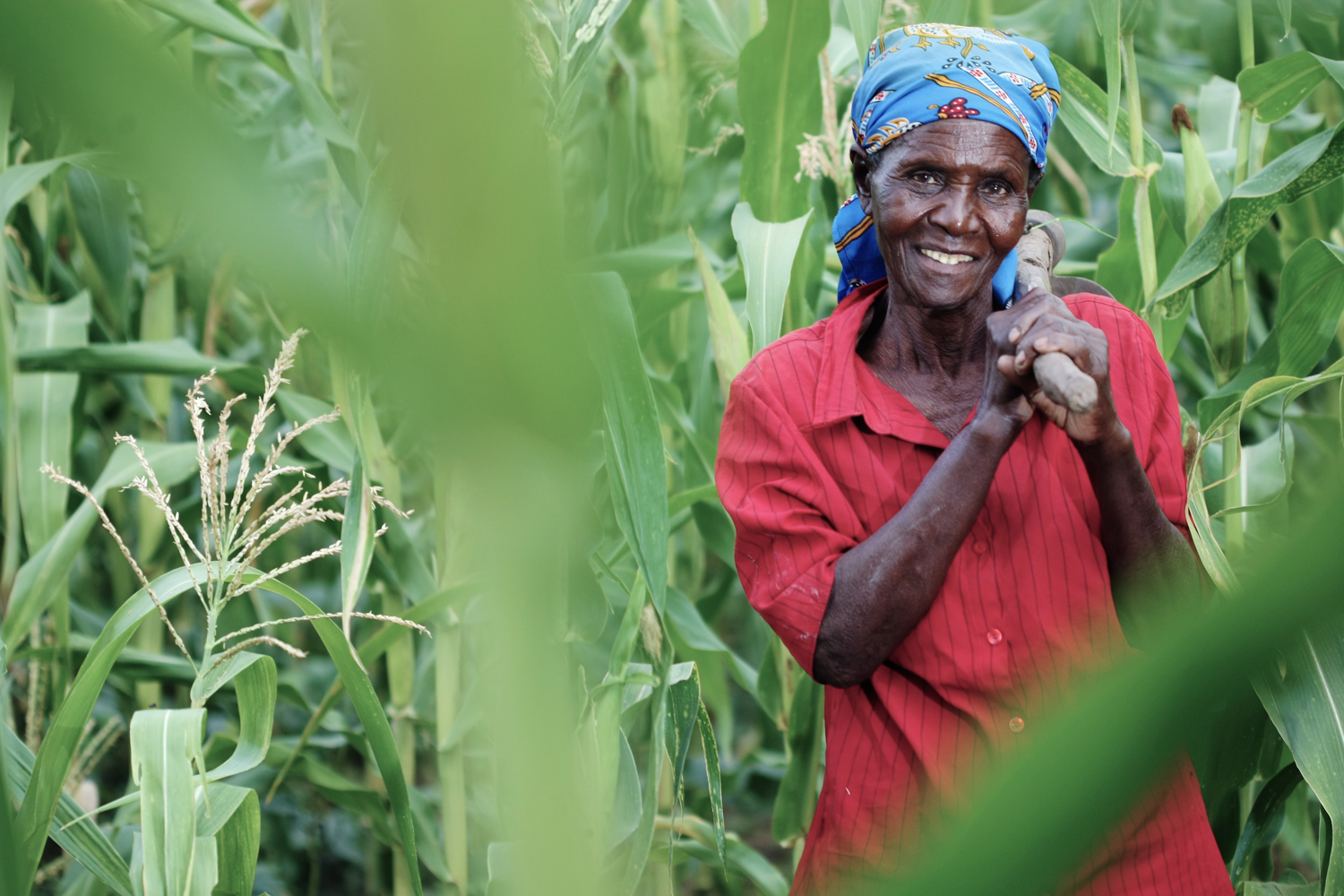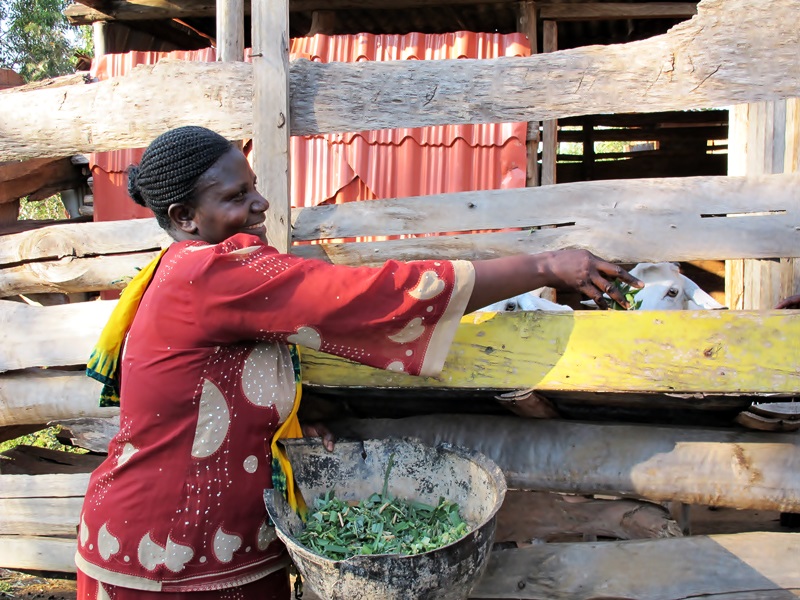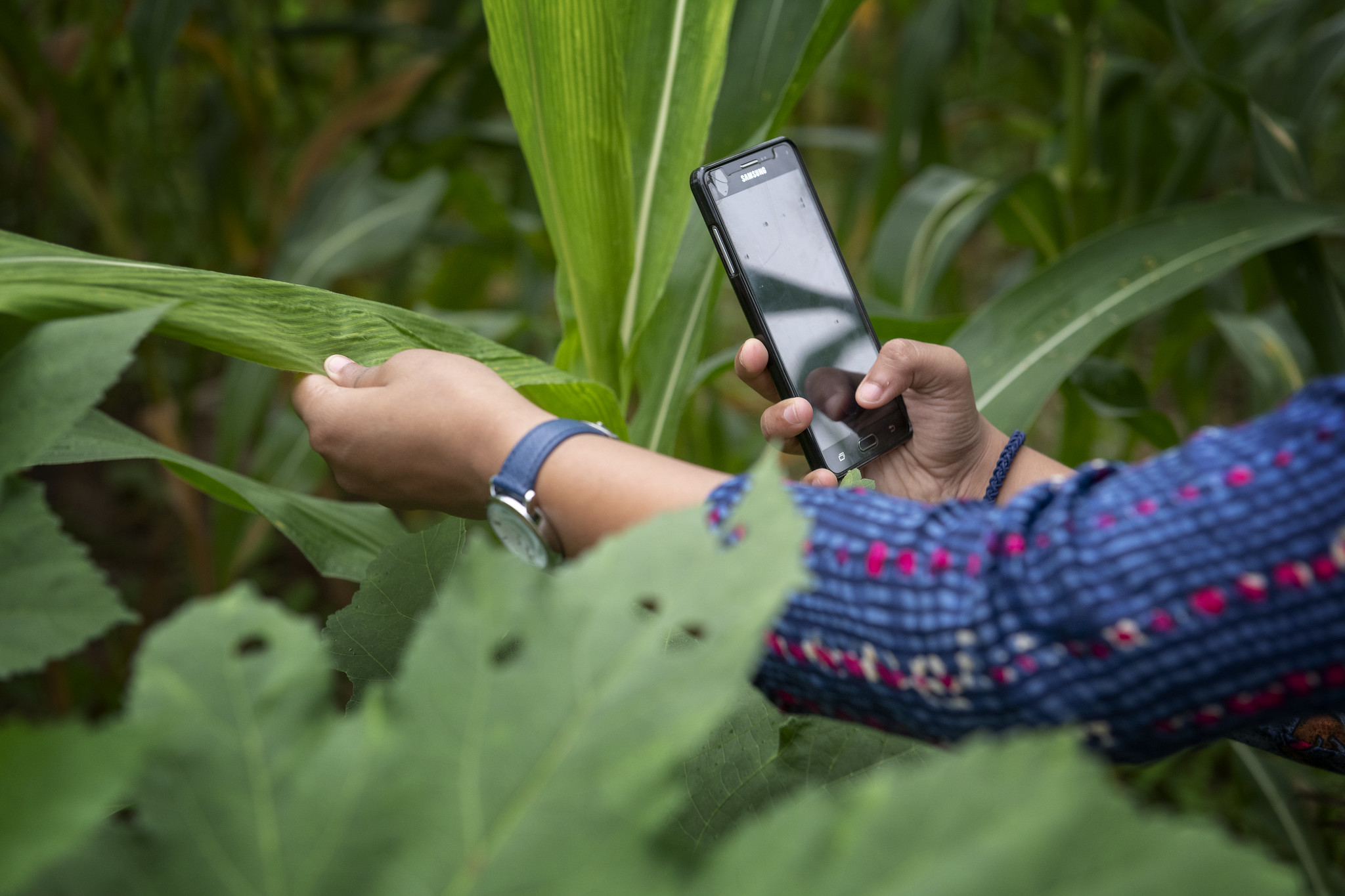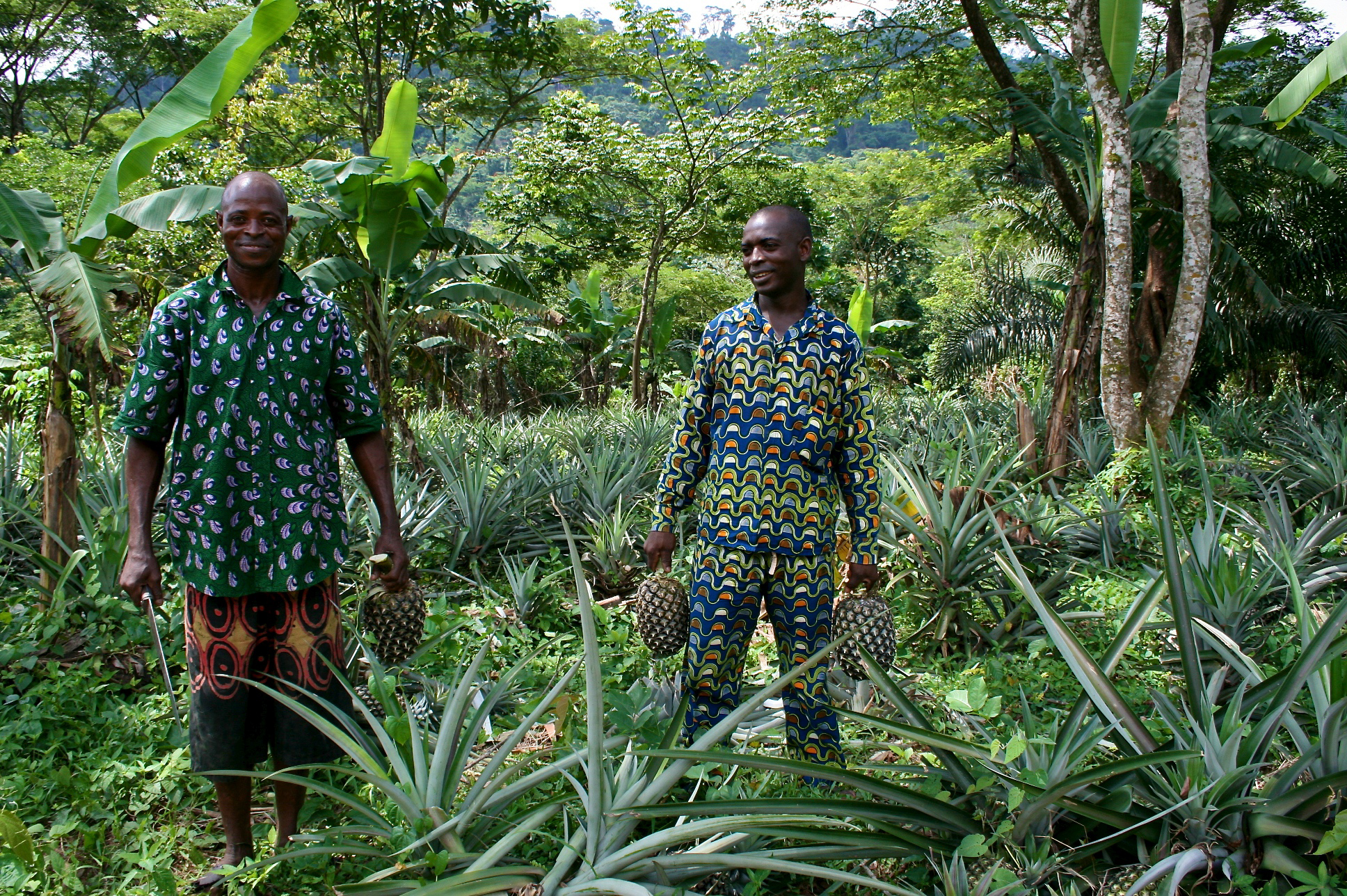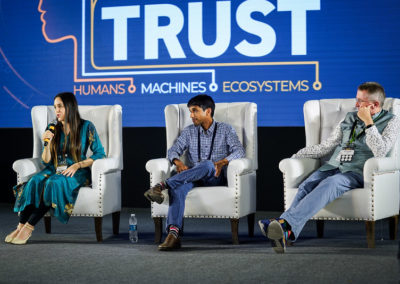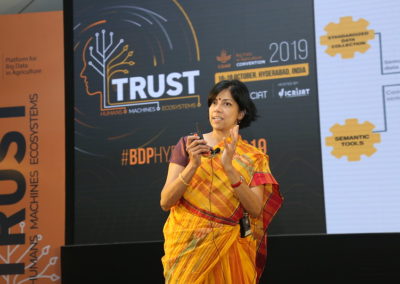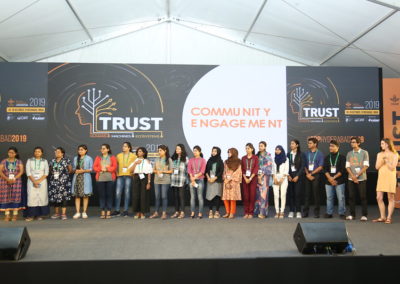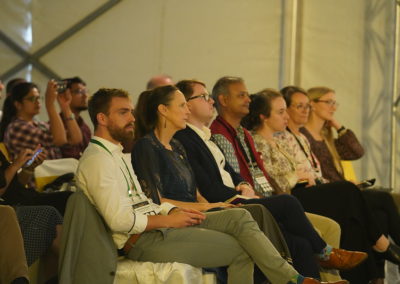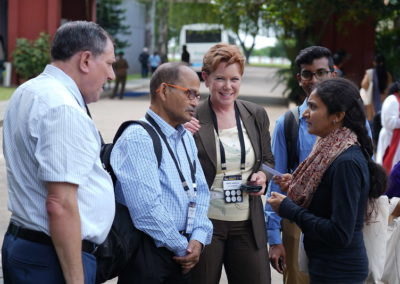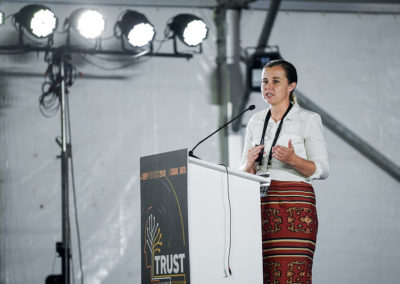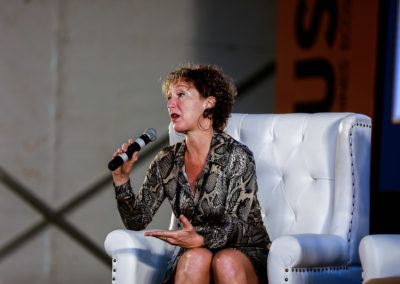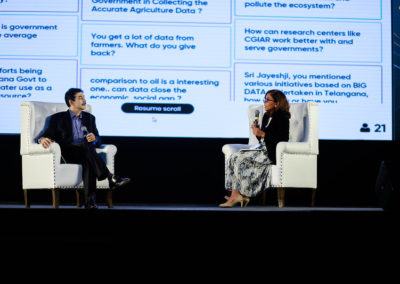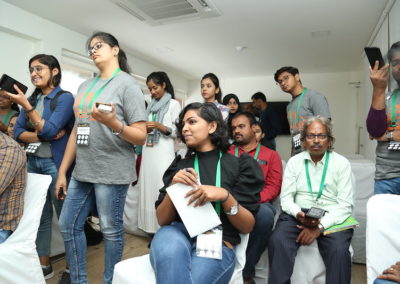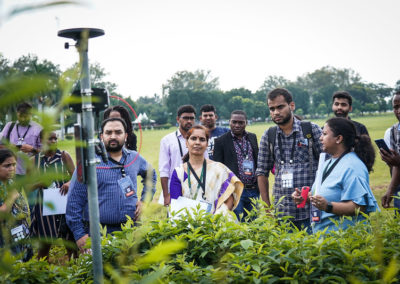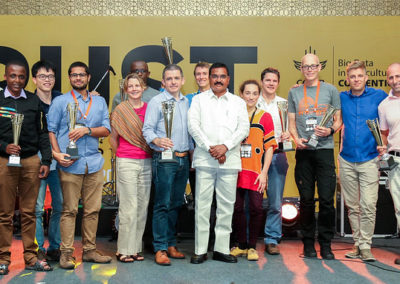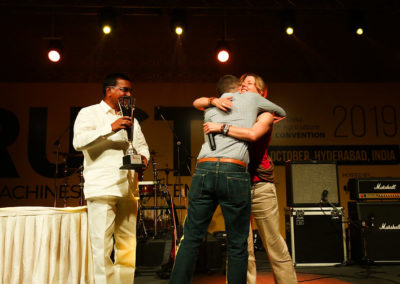Convention Highlights
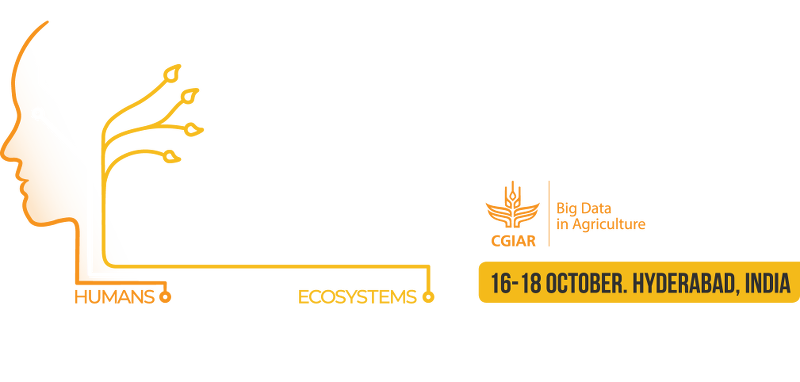
Takeaway Messages
2019 Inspire Challenge
Youth in Data
Reach and impact
Event media
2020 Convention
There is a global crisis of trust.
Governments, firms, and the media are less trusted today than they were ten years ago, and in the last few years digital tools and technologies appear to be accelerating this global erosion of trust. We have seen large-scale state surveillance programs unveiled, confirmation that human biases are encoded in algorithmic systems, and massive commercialization of user data leading to breaches in consumer trust.
What does this have to do with global food security? During our 2019 BIG DATA Convention—TRUST: Humans, Machines & Ecosystems—we examined how the economy, society, and biosphere are already linked by food systems, and how, as a result, ecological systems will be increasingly intertwined with algorithmic systems.
CGIAR and our global network of partners must navigate this global crisis of trust if we wish to claim the promise of algorithmic systems for global food security. A growing body of organizational research indicates that trust is built on three pillars: competence, integrity, and benevolence.
At the Convention, approximately 700 delegates presented an array of approaches and technological solutions to help foster these three qualities in global food systems. We have summarized some of these key takeaways here.
Yours in the data,
Brian King
Coordinator for the CGIAR Platform for Big Data in Agriculture
Key Takeaways
Improving data quality and use
- We saw how text mining of policy documents can help us monitor the three pillars of agroecology: socially equitable food systems, regenerative use of ecosystems, free choice over production and consumption.
- Radiant Earth, AtlasAI, and the BIG DATA Platform ́s Geospatial Community of Practice led sessions to validate a ‘straw man’ of minimum quality standards for ground reference data suitable for machine learning-driven analysis of remote sensing imagery for agriculture.
- BIG DATA ́s Socio-Economic Data Community of Practice launched 100Qs, a standardized list of 100 commonly-asked questions from socio-economics research in food security, enabling large scale comparablility and interoperability of socio-economic survey data.
- Results of applying the SDG Interface Ontology to the CGIAR Strategic Results Framework were presented, demonstrating the power of the agility, data interoperability, and precision of language ontologies bring when applied to organizational strategy and opening the way to develop powerful new capabilities in support of the new CGIAR Results Dashboard.
- Partners presented case studies of the power of using non-traditional data such as social media, mobile network metadata, mobile money transaction data for food security research.
- GARDIAN came into its own as a trusted intermediary in the data ecosystem, facilitating data discovery from national agricultural research organizations and development agency partners and new pipelines and data products built with pan-CGIAR data.
Partnerships and collaboration
- Research data leaders from five CGIAR Centers and three external partners converged on a vision of good practice throughout the research data lifecycle. By sharing and reviewing technologies and practice across the whole research data lifecycle, we charted a way forward together to data-enable food security research and impacts.
- ICRISAT researchers presented a draft reference architecture for IoT networks for crop improvement and agronomy research, developed with CIAT researchers and the BIG DATA Platform.
- CGIAR and partner engineers presented image processing and analysis pipelines for drone imagery spanning breeding, agronomy, and landscape use-cases.
- The mobile industry association, a mobile operator from Sri Lanka, and IBM/The Weather Company affirmed that there is a significant opportunity to ally with each other and CGIAR on developing new services for climate smart agriculture.
- The BIG DATA Platform and Accenture Development Partnerships presented progress on mapping out a unified information vision for CGIAR and partners.
Discovering and examining new tech
- Delegates from Google and the University of Cambridge led sessions on how and where to shape the product and research agenda to ensure artificial intelligence services are human-centred while we understand and avert systemic risks to human or food security.
- An array of systems for enabling and intermediating large-scale collective action were examined, including: sustainability games, agent-based modeling linked with remote sensing for watershed management, and machine learning-driven agro-ecological modeling.
- 250 players tested the alpha version of a game simulating the social dilemmas of sustainable management of water resources for farming. The game will be launched on a social media platform to see how it might inform sustainable management of a real water resource.
- Reinforcement learning (a class of machine learning) was introduced as a potential key enhancement to crop models.
- A two hour workshop equipped developers with the skill to build their own blockchains.
Privacy, ethics, and consent
- A legal consultant with the Platform for BIG DATA outlined a new, dynamic approach to informed consent based on ongoing partnership and collaboration with data holders.
- The Minnesota Supercomputing Institute presented work undertaken with the BIG DATA Platform to converge regulatory and ethical frameworks and map them to detailed international standards for data systems for managing sensitive data. We are moving beyond guidelines–useful but by definition very general–to architectures and standards for responsible data in our sector.
- Experts in intellectual property, international treaties on biodiversity, and genetic resources staged a “commons debate” to help elucidate and unpack the complexity of effective stewardship of genetic resources in the age of digital sequences.
- Experts in digital extension examined the depth of the challenge and some key learnings for building ethical, trustworthy digital advisory services.
Working towards the SDGs
- DATA & GENDER: Gender experts and data scientists working with mobile network metadata, converged on methods for trying to predict and observe changes in women’s economic empowerment at a whole-of-system scale.
- FINANCIAL INCLUSION: Experts examined the opportunities for leveraging the convergence of the world’s largest biometric identification system (Aadhaar), mobile phones, and the world’s largest financial inclusion program (Jan Dhan Yojana) for transforming rural livelihoods.
- DATA & GLOBAL DIETS: A cross-disciplinary panel and a member of the EAT-Lancet Commission and co-author of the 2019 report “Food in the Anthropocene” explored the notion of eating within planetary boundaries, and looked at how the data could be mobilized to examine real diets in global context.
Innovation and the Inspire Challenge
- Ten stellar projects competed for start-up grants from the CGIAR Inspire Challenge, and four were awarded 100,000 USD each to continue their project.
- Seven teams who had completed startup awards competed for scale-up funds and four were awarded a combined total of 625,000 USD
Last year’s Inspire Challenge scale-up winner “Seeing is Believing” demonstrated how they anonymized cellphone camera images and developed an image processing pipeline to build a living, high-quality dataset from the flow of wheat field images from some 33,000 farmers with mobile phones. - An innovation bazaar buzzed with thirty potential solutions in robotics, remote sensing, applications, and more.
- Legal consultants, innovation managers, and researchers into innovation examined gaps in the agtech startup ecosystem and good practices in setting up digital accelerators for agriculture.
At a glance

attendees
companies and organizations
20 Million
audience reached
1 Million
USD awarded
2019 Inspire Challenge Winners
The eight winners of the 2019 Inspire Challenge are groundbreaking innovations that use big data approaches to solve agricultural development challenges across the globe, from Vietnam to Guatemala.
More than 150 applications from across the world were received for the 2019 Challenge, a record number of submissions. The applications underwent a preliminary judging phase, and ten finalists were selected to pitch to a panel of expert judges at the BIG DATA Convention.
In addition to four pilot project grants, the BIG DATA Platform awarded scale-up grants to four previous Inspire Challenge winners, from years 2018 and 2017, who demonstrated exceptional results, proven viability, and potential for impact. Scale-up awards are intended to provide extended support to pilot projects with the greatest impact potential as they mature further and strengthen their business case, ultimately attracting investment capital.
Applications received
winners
USD awarded
We are getting better at targeting big data innovation in a few key ways:
- In 2017 less than 10% of proponents proposed to use machine learning on large unstructured data sources, whereas more than 65% of 2018 and 2019 proponents did.
- The percentage of proposals directly targeting small producers (crop and livestock farmers, fisher-folk) has nearly doubled since 2017.
- 2019 saw even more of a shift away from basic research innovation over previous years. In 2019, 69% of proposals were categorized as incremental innovation and disruptive innovation, compared to 21% in 2017. Incremental and disruptive innovation tend to have more immediate and widespread impacts in comparison to basic research.
- In 2019, 80% of Inspire Challenge proponents included a gender component, up from 70% in 2018.
Youth in Data participation
For the second year of our annual Youth in Data Workshop, we received over 80 applications to participate and enrolled 30 delegates to participate in the 2019 Convention. This event builds on the launch of our new BIG DATA youth initiatives, as we work to engage youth in digital agriculture, and to engage with youth already in the sector, in a meaningful way.
The 2019 Youth in Data group was composed of students from enginering and journalism universities local to Hyderabad, as well as PhD scholars from the ICRISAT campus.
The workshop introduces participants to important themes around digital agriculture and how using big data approaches to agricultural development can accelerate food security goals. Delegates were also trained in how to use digital media as a powerful tool to communicate about development, learning the basics of social media, interviewing, blog writing, data reporting, and other media skills.
Delegates were able to apply their newly-acquired skills during the convention, they engaged on social media, interviewed leading industry experts, speakers and 2019 Inspire Challenge finalists, and wrote blogs on topics of their choice.
Youth in Data blogs and interviews:
Community reach and impact
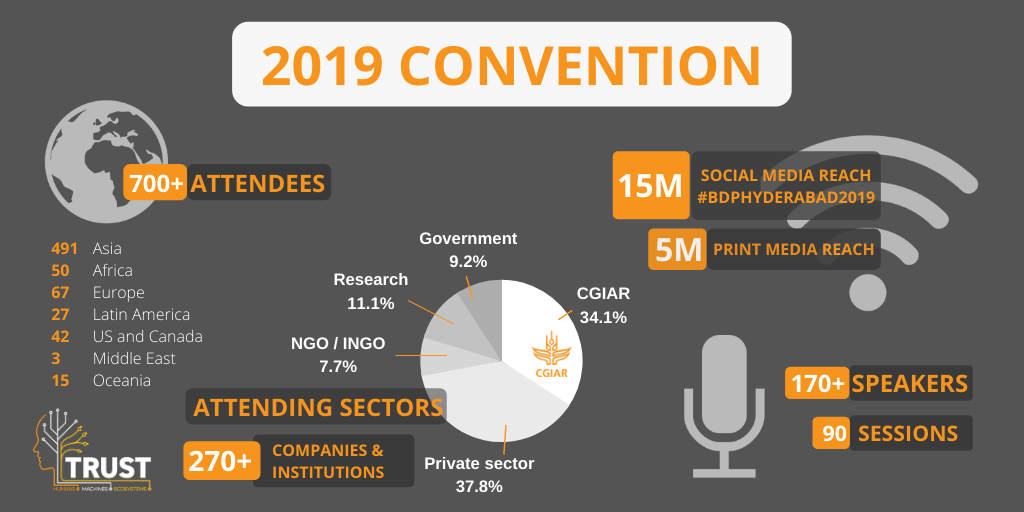
- 700+ attendees from across the globe
- 5K online viewers via livestream and facebook live
- More than 270 global companies, universities, institutions and governments represented
- 15 million Twitter impressions for #BDPHYDERABAD201 with 40% more increased engagement on previous year
- 5 million audience reached through local and global media coverage, notably United News of India, Telangana Today, The Hans India, EIN Presswire, and Thomson Reuters.
TOP TWEETS
Super proud of all our 'Youth in Data'.
— John Agboola O (@JohnAgboola_) October 23, 2019
New year, new record, new energy and great people.
You are CHAMPIONS 🏅🏆🏆🏆🏆🏆 and I celebrate everyone 👏👏👏💯#bdphyderabad2019 https://t.co/ZM9jBJLgIl
We loved hosting the recently concluded #BigDataInAg Convention at our campus, where over 650 data experts brainstormed ideas to help smallholder farmers across the globe. Read more here: https://t.co/SP2EWTysQT#BDPHYDERABAD2019 #InspireChallenge @CGIAR_Data @CIAT_ @ifpri @ILRI pic.twitter.com/j7PRUhZ8Xk
— ICRISAT (@ICRISAT) October 20, 2019
A deep dive into the GARDIAN ecosystem on how to make data Findable, Accessable, Interoperable & Reusable by @medha_devare. #BDPHYDERABAD2019 #BigDataInAg @CGIAR_Data @CGIAR @ICRISAT @IFPRI pic.twitter.com/jSVtA42MOI
— ThoughtFolks Digital (@Thoughtfolks) October 17, 2019
Really proud to see @ICRISAT host #BDPHYDERABAD2019 on our beautiful campus. Great job team. @ICRISAT @CGIAR_Data @CGIAR https://t.co/f6EPN4377H
— Peter Carberry (@CarberryPeter) October 19, 2019
Our team in #Hyderabad at @CGIAR_Data Big Data in Agriculture Convention 2019 (16-18 Oct) #BDPHYDERABAD2019 #BigDataInAg #DataDrivenAgExtension Come say hello!#BigDataPoweredAgriculture pic.twitter.com/WMjyUij2W2
— Digital Green (@digitalgreenorg) October 17, 2019
The @CoP_CM leader Matthew Reynolds presents our sessions about making more research data available for crop modeling and system understanding purposes at @ICRISAT at the #BDPHYDERABAD2019. @CGIAR_Data pic.twitter.com/2elRL2eWo9
— CoP on Crop Modeling (@CoP_CM) October 16, 2019
"We are combining #irrigation mapping with #solar irrigation potential analysis & near real-time pumping data from a network of connected solar pumps and the combination will be 'REAL-GUD' - #IWMI's #DavidWiberg. Come meet our team #IWMI + @futurepump TODAY @ #BDPHYDERABAD2019. pic.twitter.com/mKCDffHsqO
— IWMI (@IWMI_) October 17, 2019
We welcomed @InnovationSarah to #Hyderabad today! We started at @ICRISAT, inspecting millet in the fields, millet seeds in the seedbank, catching up with 🇦🇺 scientists on campus, and even finding time to address #BDPHYDERABAD2019 (and this was just the morning!) #innovation pic.twitter.com/HCLGqkDrAo
— Aus Consulate Chennai (@AusCGChennai) October 17, 2019
Excited to speak tomorrow at the 2019 CGIAR Big Data in Agriculture Platform Convention about monitoring crops with geotagged crop images - and the #data are going online for you to use - so stay tuned for more! https://t.co/rAcaNQPtap @cgiar_data #BDPHYDERABAD2019
— Berber Kramer (@BerberKramer) October 16, 2019
This morning the @CGIAR_Data #InspireChallenge2019 finalists took the stage at the #BigDataInAg Convention @ICRISAT! Thanks to @thoughtfolks for great coverage of the event! #BDPHYDERABAD2019 #ihub #Bigdata #Agritech @CIAT_ pic.twitter.com/4UuIYTjXD3
— CGIAR (@CGIAR) October 16, 2019
Event media
Convention 2019 Gallery
Presentations
Visual presentations from Convention sessions are available via Sched. Please note: You must be logged in to a Sched account to view the presentations.
Livestream footage
We will process the Convention recordings and publish in the coming months. Stay tuned!
Join us in 2020
We’re excited to announce that the 2020 Big Data Convention will take place at the International Potato Center (CIP) headquarters in Lima, Peru!
Watch the video announcement above for a special message from CIP Deputy Director General for Research and Development, Oscar Ortiz.
We’ll see you at #BDPLIMA2020!

